File Server Installation
The File Server works as a File Storage for Patch and Package Management. It can be installed on the same machine where the main server is installed or on another machine which is reachable by the main server. The File Server is mandatory for Patch/Package Management. Thus the installation of File Server is required if the Patch Management license is enabled.
If the Patch/Package Management is running for multi location based organization then for each location we need to install one File Server on separate machine at respective locations and reachable to the main server. This is a preferable solution for multi location based organization. But, it can be managed by single File Server for a Single location based organization, where only one File Server is required to install.
What is a File Server?
A file server is a computer responsible for central storage of data. A file server works in conjunction with our main server, and it’s the backbone for Remote Deployment. A file server is a must in the following usage scenarios:
- Deployment of Patches.
- Deployment of Packages.
- Self-upgrade of Motadata Agent application.
Supported OS
The File Server is supported on the below OS:
For Multi-Tenant License Users: Starting from version 8.6.2, each tenant must have a dedicated file server. Shared file servers are no longer supported across multiple tenants.
Linux Installation Steps
Step 1: Download the Motadata File Server (Ubuntu + Redhat) from here.
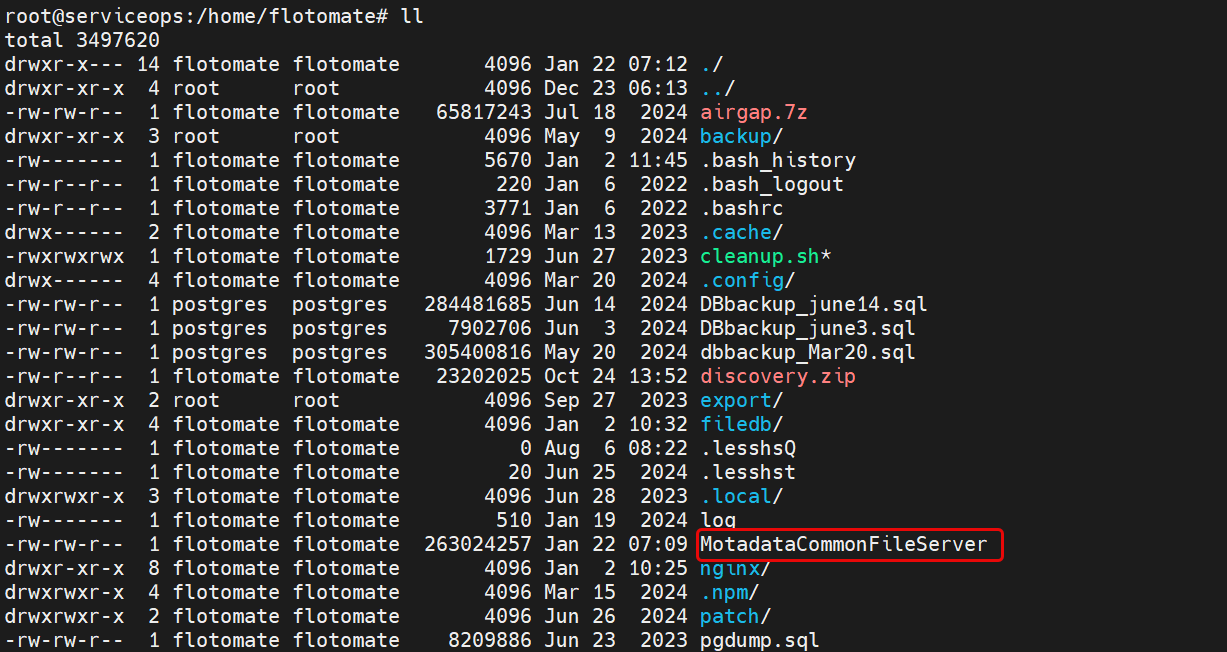
Step 2: Provide the execution permission to the file using the below command:
Syntax: chmod 777 file-server-name
Example: chmod 777 MotadataCommonFileServer

Step 3: Run the executable Patch package file using the below command:
Syntax: ./file-server-name
Example: ./MotadataCommonFileServer

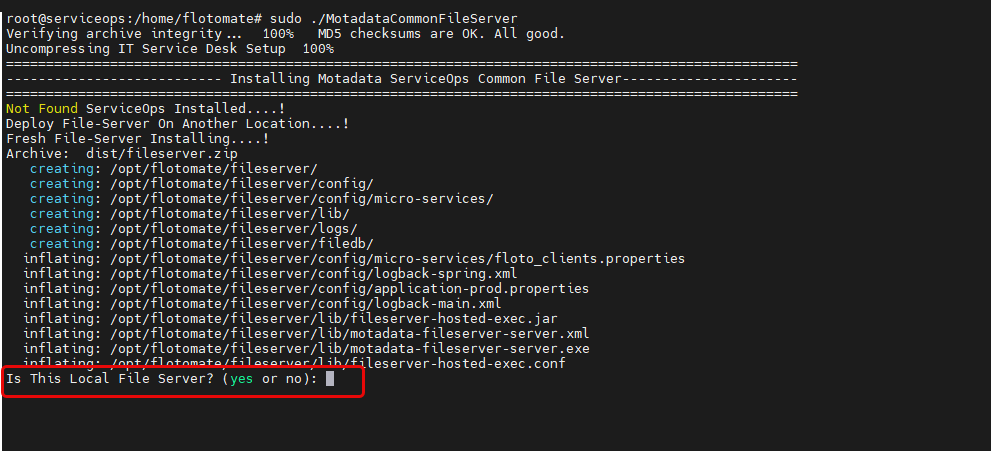
Step 4: Specify whether it is the Local File Server as yes or no.
If NO is entered, enter the Main-server(ServiceOps) IP address during installation.
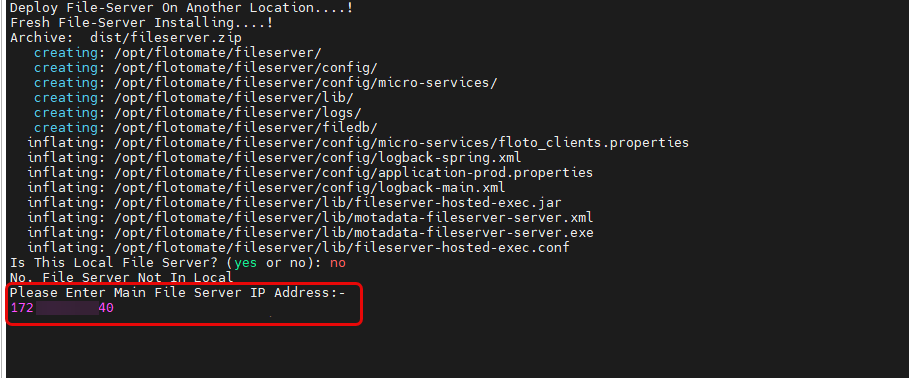
Step 5: Enter the storage location. It is optional. If no location is required just press enter and the next prompt will appear.
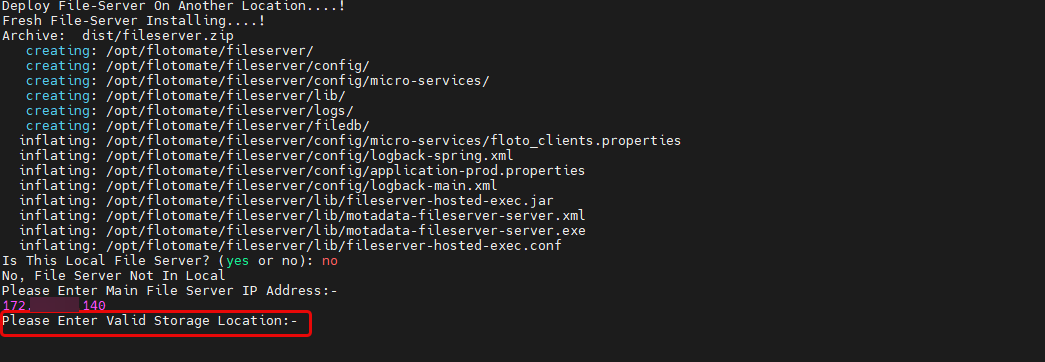
Step 6: Enter the Secure Auth Code. You can get the code from the File Server Credential Profile page.
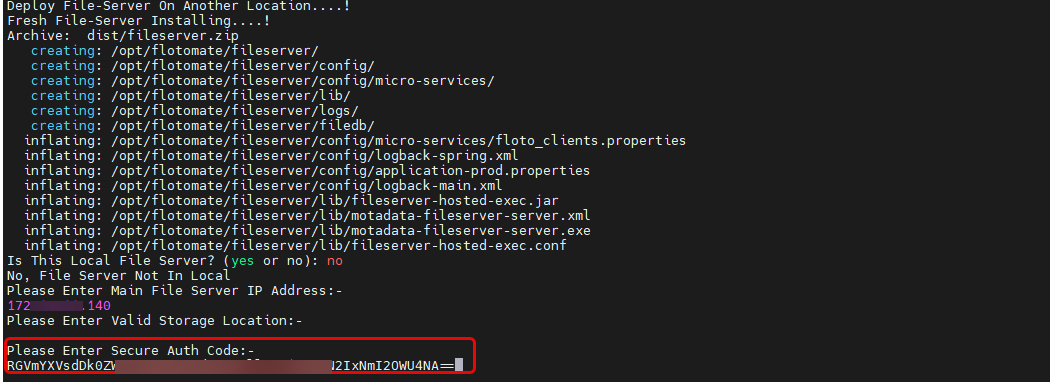
Step 7: Enter the port number. It is optional. If nothing is entered it will take port 80 for http and 443 for https.
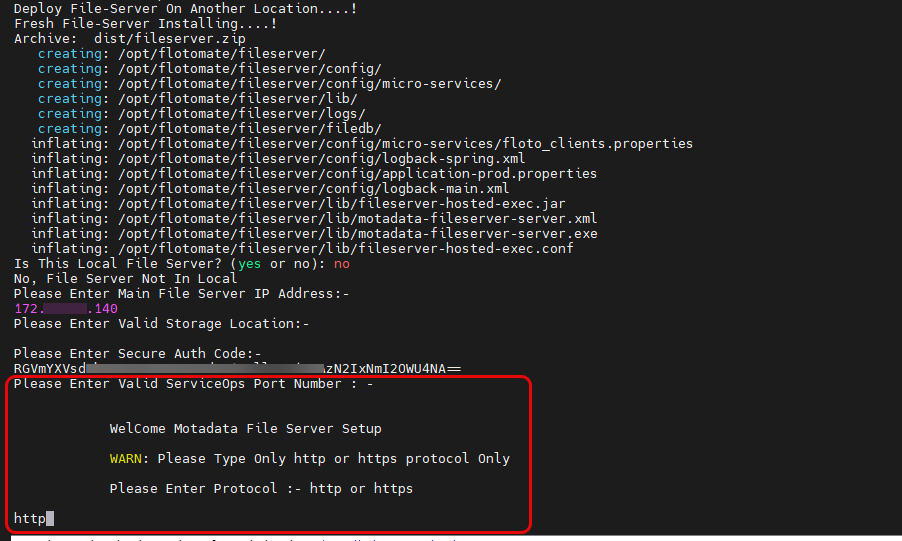
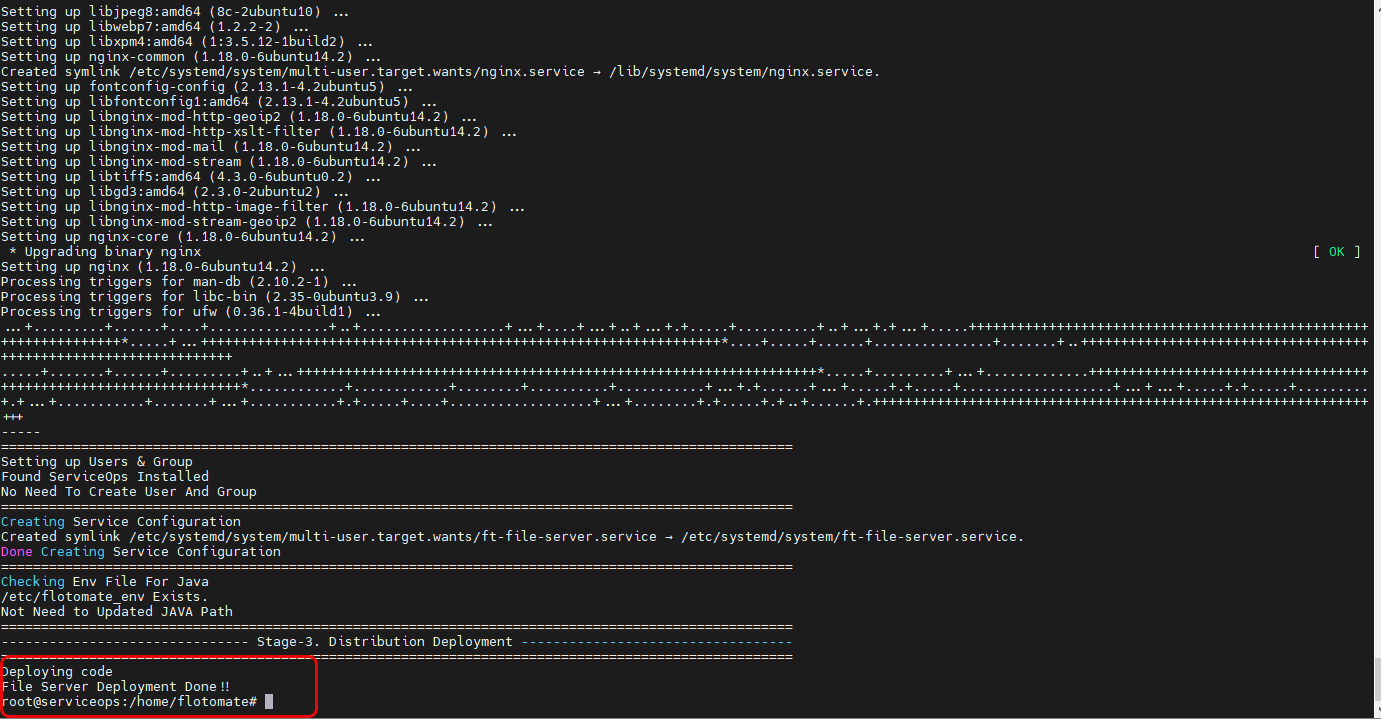
The file server is now installed.
Step 8: Check the Motadata File Server Service using the below command:
systemctl status ft-file-server

Step 9: Once installed, the File Server will appear in the ServiceOps portal under Admin > Patch Management > Patch Settings > File Server > Server List tab as shown below.

In case of Local installation, The File Server URL field will be updated automatically.
In case of Remote installation, The File Server URL field will be blank and must be updated manually. If not updated the Agent will be unable to download patches from the File Server.
- The File Server URL should be the public URL that allows communication with the Main Server. In environments with multiple file servers, provide the public URL specific to each individual server.
- If the File Server is installed on the same system (locally installed) as ServiceOps, it will be marked as the Primary Server. If multiple local file servers are installed, the one configured in the Patch Settings > File server and Remote Office > Local Office will be considered as the Primary Server.
- If it is a remote Distribution Server, it will be marked as No under the Primary Server column.
Upgrade Guidelines:
Upon upgrade, please check the following:
1. In case of local installation, verify the Local File Server IP is updated in the Server URL
Navigate to Admin > Patch Management > Patch Settings > File Server.
Check if the "Server URL" of the Local File Server is updated in the table.

2. In case of remote installation, update the File Server entry in the associated Remote Offices.
Navigate to Admin > Patch Management > Patch Settings > Remote Offices.
In the "Server List" dropdown, select the File Server with whom the remote office should be connected. For example, here 172.16.11.153 is selected.
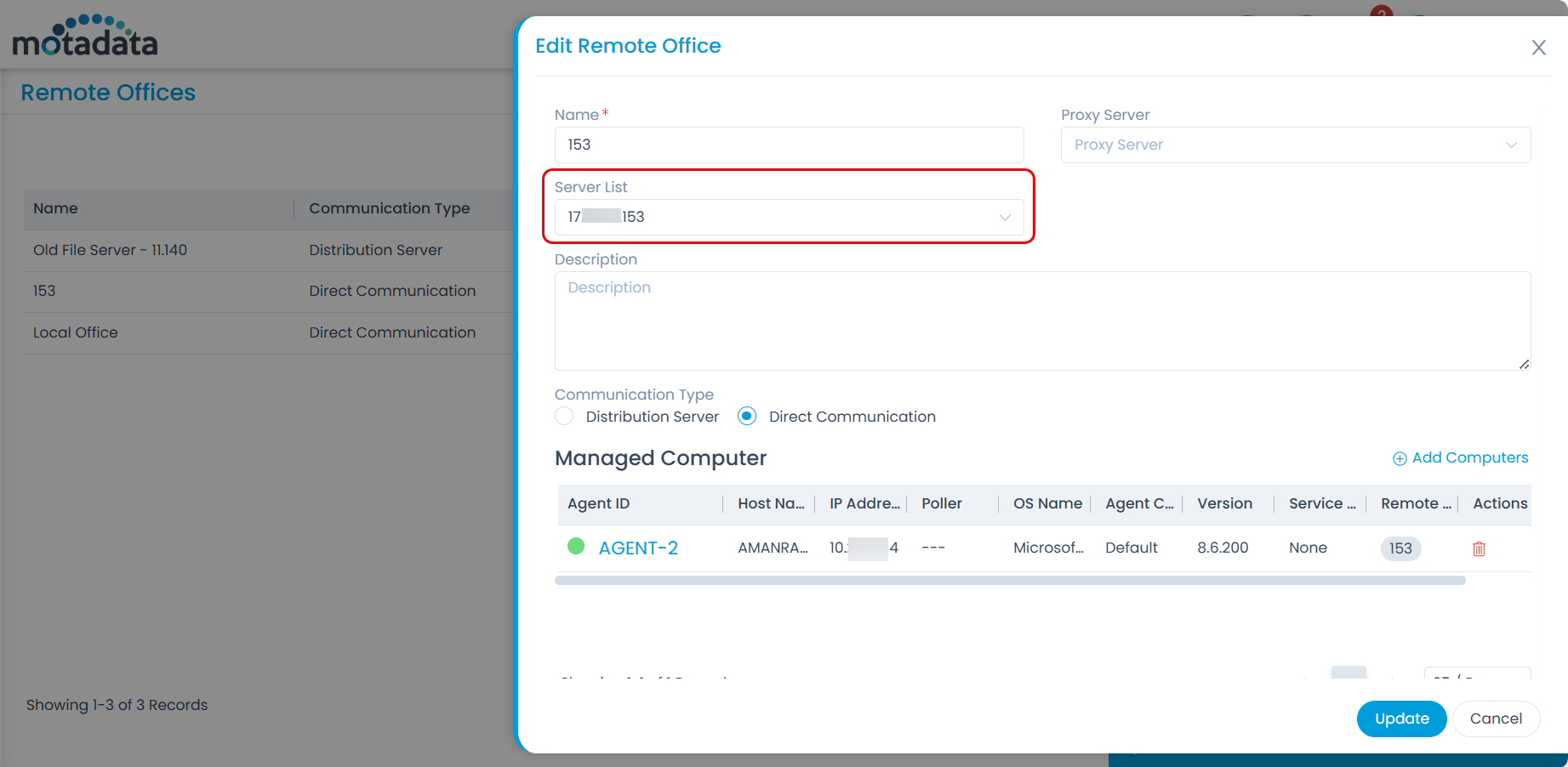
Once done, Update.